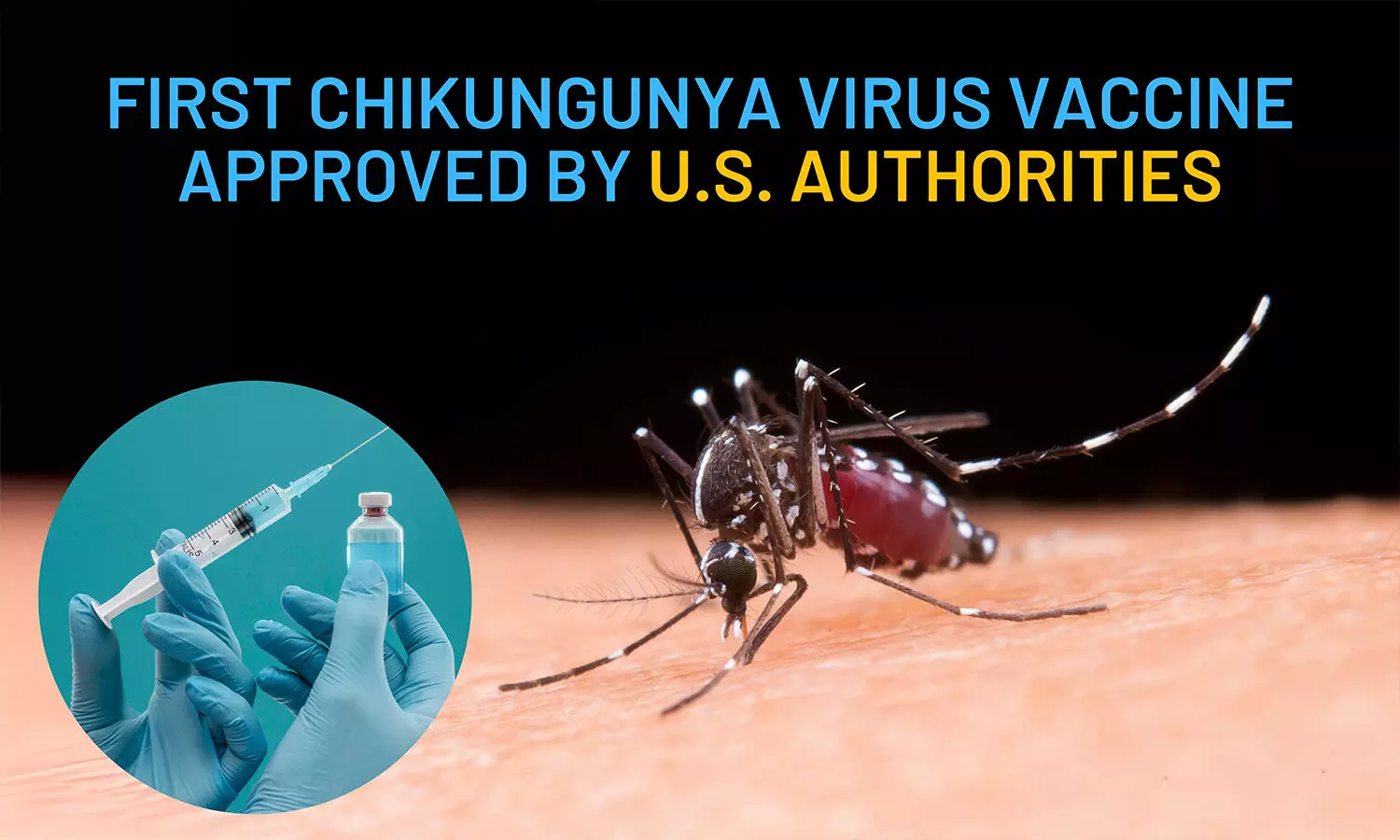A Health Milestone: Chikungunya Virus Vaccine Approved by U.S. Authorities

Learn about the first-ever chikungunya virus vaccine approved by U.S. authorities. Know how this development will help control chikungunya outbreaks worldwide.
In the latest development for global health, U.S. authorities have approved the first-ever vaccine for the chikungunya virus. This marks a significant milestone in the fight against a virus that has plagued populations across the globe, especially in tropical and subtropical regions. The approval of this vaccine is not only a testament to scientific progress but also a beacon of hope for millions living in Chikungunya-endemic areas. With this new tool in the arsenal of public health, we may finally be on the path toward controlling and preventing a disease that has had devastating impacts worldwide.
Understanding Chikungunya
Chikungunya is a viral illness transmitted primarily by the Aedes aegypti and Aedes albopictus mosquitoes, which are also responsible for spreading other diseases such as dengue and Zika. The chikungunya virus, though not often fatal, causes debilitating symptoms. The most common include severe joint pain, high fever, fatigue, and rashes. Joint pain can be particularly persistent, sometimes lasting for months or even years, leading to chronic disability in some cases. The disease first re-emerged with intensity in 2004, spreading from Africa to Asia, Europe, and the Americas, affecting millions of people.
The global spread of chikungunya has been facilitated by the movement of infected travellers and the presence of the Aedes mosquitoes in various parts of the world. Countries with warmer climates have been particularly vulnerable, with outbreaks reported in regions including Africa, Asia, the Indian subcontinent, and parts of the Americas.
The Long-Awaited Chikungunya Vaccine - A Milestone in Disease Prevention
After years of research and clinical trials, the U.S. Food and Drug Administration (FDA) has finally approved the first-ever chikungunya vaccine. The vaccine, known as VLA1553, was developed by the French biotech company Valneva SE. It has been designed to provide long-lasting protection against the chikungunya virus with a single-dose injection, making it highly convenient for use in mass immunisation campaigns.
The approval of VLA1553 follows the results of rigorous clinical trials that demonstrated its safety and efficacy. During these trials, the vaccine was shown to induce a robust immune response in individuals, with over 95% of participants developing protective antibodies against the virus. This high level of efficacy is critical in areas where chikungunya is endemic, as well as for travellers heading to regions where the disease is prevalent.
Impact of Chikungunya on the Global Health System
Chikungunya has a profound impact on the health and economic well-being of populations in affected regions. Since the chikungunya virus causes long-lasting joint pain and fatigue, it can leave individuals unable to work or carry out daily activities, placing a significant burden on families and communities. During major outbreaks, healthcare systems have been overwhelmed, with hospitals inundated by patients seeking relief from the severe symptoms.
The economic costs associated with Chikungunya outbreaks are also substantial. In regions with frequent outbreaks, the disease disrupts productivity, leading to losses in income for individuals and economic setbacks for countries reliant on tourism or agriculture. Preventing outbreaks through vaccination could alleviate these economic pressures while reducing the need for emergency healthcare responses.
The Path Ahead to Vaccine Development
Developing a vaccine for chikungunya has been a complex journey. Scientists first began working on potential vaccines after the re-emergence of chikungunya in the mid-2000s. However, given the challenges of working with mosquito-borne viruses and the unpredictable nature of outbreaks, progress was slow. It was only in recent years, with advancements in vaccine technology and an increased focus on combating neglected tropical diseases, that the development of a chikungunya vaccine accelerated.
The success of Valneva’s VLA1553 vaccine is partly due to the use of live-attenuated virus technology, where the virus is weakened but still capable of triggering an immune response. This approach has been effective in creating other vaccines, such as the yellow fever vaccine, which has been in use for decades. The development of VLA1553 was also aided by partnerships with public health agencies and funding from organisations focused on emerging infectious diseases.
New Treatments and Vaccine Options
The approval of the Chikungunya vaccine is just the beginning. While VLA1553 is the first vaccine to receive approval, several other chikungunya vaccines are in the pipeline, with different approaches to immunisation. These include vaccines that use non-live virus platforms, which may be suitable for populations with compromised immune systems. The ongoing development of additional vaccine options will be essential to ensure that everyone, regardless of health status, can be protected from the virus.
Furthermore, research into treatments for chikungunya continues. While vaccines are the most effective preventive measure, there is still a need for treatments that can alleviate symptoms or shorten the duration of illness. Scientists are exploring antiviral drugs and therapeutic antibodies that could be used in conjunction with vaccines to provide a comprehensive approach to chikungunya management.




